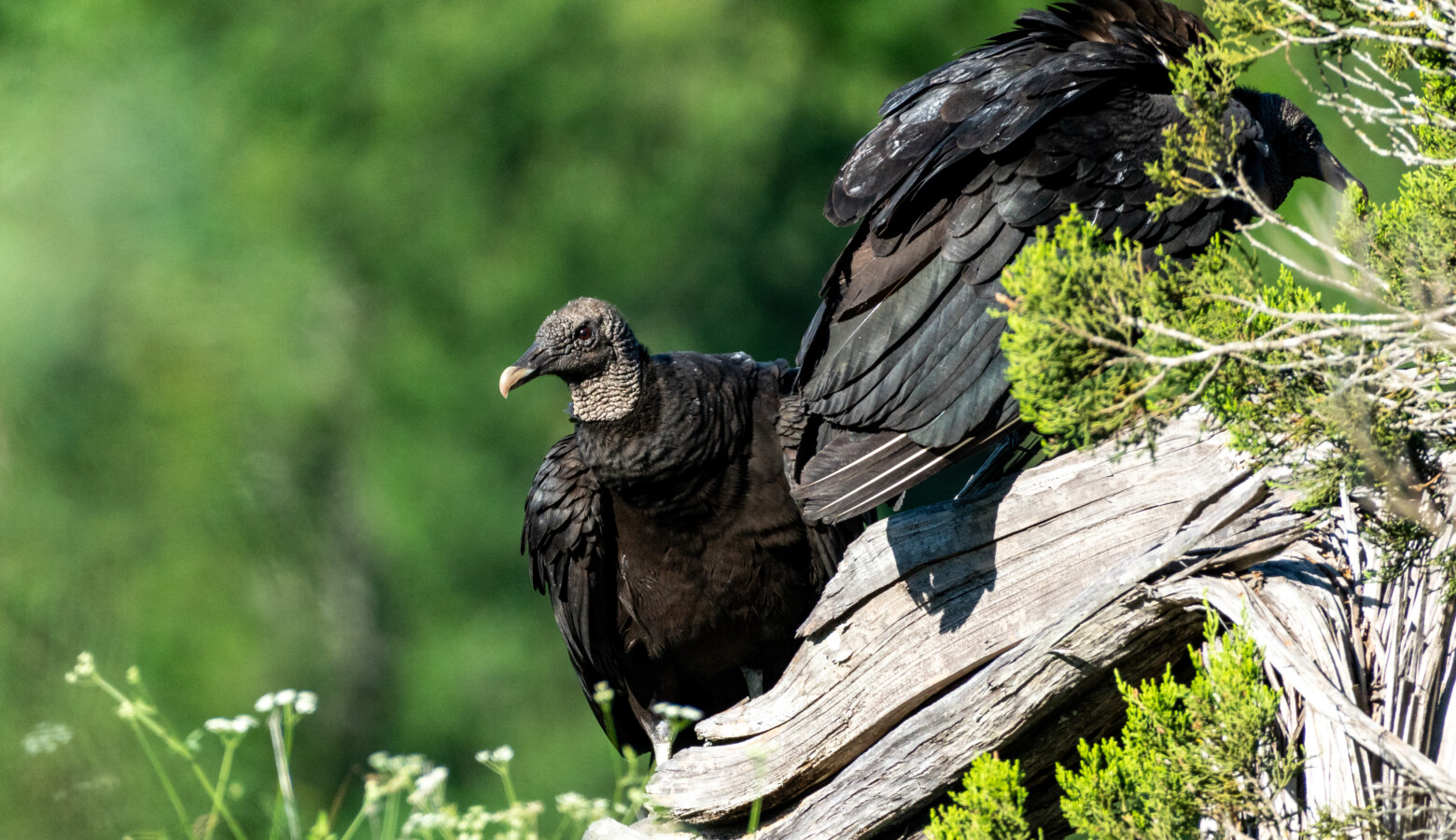Black Vultures Are Causing Problems On Farms, Purdue Needs Help Researching Them

Black vultures have been harassing and sometimes killing calves, costing Indiana cattle farmers money. Purdue University researchers need farmers’ help to study the problem so they can come up with solutions.
Not to be confused with turkey vultures, black vultures have black heads. More of them have moved into Indiana in recent years — but Purdue researchers aren’t sure why. They suspect a warming climate and land use changes could be some factors behind the move.
Purdue doctoral student Marian Wahl said vultures are important — they clean up animal carcasses and help control diseases like rabies. Though they mostly prefer scavenging, Wahl said black vultures occasionally attack particularly vulnerable animals — like newborn calves.
“They’ll go and hang around and wait for it to die and sometimes kind of take some action to hasten that process along,” she said.
Purdue is performing free autopsies on livestock that farmers suspect have been killed by black vultures. The idea is to develop a way to tell when an animal has been killed by a black vulture so that farmers can be compensated.
Wahl said not everyone believes farmers when these attacks happen.
“Everybody knows that vultures are primarily scavengers. So there have been issues with livestock producers reporting this problem and just being told that they’re wrong,” she said.
The university also hopes to survey all kinds of livestock farmers about their experiences with the vultures and how they’ve tried to control them.
Purdue doctoral student Brooke McWherter and Zhao Ma, a professor of natural resource social science in Purdue’s Department of Forestry and Natural Resources, collaborated on the survey.
Ma said researchers also want to hear how farmers react to the loss of livestock and how — or if — they want to be compensated for that loss. She said many farmers care about more than just the money.
“If I could receive confirmation that this happened and we feel really bad, maybe I would have felt much better about the situation rather than just some faceless person sending me a check,” she said.
Black vultures are a protected species and can’t be killed without a permit. Purdue is looking into other ways farmers can deter them — such as using dead vulture decoys, cattle dogs, and lasers. Wahl said she plans to test out some of these different strategies to see how effective they are.
Patrick Zollner is a professor of quantitative ecology in Purdue’s Department of Forestry and Natural Resources. He said the cow-calf farm system in general might attract more of these black vultures because there are many cows giving birth all at once.
”There’s a lot of afterbirth, placentas on the ground. These are things that these vultures would naturally be scavenging anyways. And this probably enhances the opportunity for this conflict when there’s an individual cow giving birth to a calf in a place where there’s a higher concentration of vultures than you would normally expect,” he said.
To donate a potentially attacked calf, call Marian Wahl at 317-647-5294.
CORRECTION: The original version of this story called Zhao Ma a professor of “natural resources and social science.” That was incorrect. Her title is professor of natural resource social science.
CLARIFICATION: A previous version of this story said some farmers may want monetary compensation while others may want to just be understood. For the purpose of clarity, the story has been changed to better reflect the diversity of perspectives researchers may hear from farmers. The story has also been updated to clarify the role of doctoral student Brooke McWherter in the research.
Contact reporter Rebecca at [email protected] or follow her on Twitter at @beckythiele.
Indiana Environmental reporting is supported by the Environmental Resilience Institute, an Indiana University Grand Challenge project developing Indiana-specific projections and informed responses to problems of environmental change.


